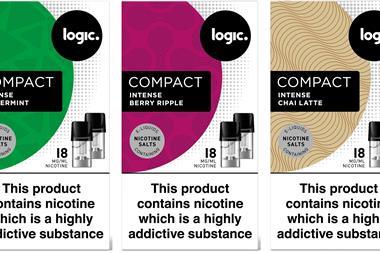Vaping poses only a small fraction of the risks of smoking and switching completely from smoking conveys “substantial health benefits over continued smoking,” an evidence review by Public Health England (PHE) claims.
It is the fourth in a series of reports commissioned by PHE on electronic cigarettes (e-cigs) and updates the 2015 findings.
Vaping is “at least 95% less harmful than smoking” and e-cigs could be contributing to at least 20,000 successful new quits per year and possibly many more, it said.
In the first half of 2017, successful smoking quit rates in England were at their highest ever observed and for the first time, parity across different socio-economic groups was also seen. “It is plausible that e-cigs have contributed to this,” the report added.
In addition, the evidence does not support concerns that e-cigs are a route into smoking among young people. Youth smoking rates in the UK continue to decline, regular e-cig use among young people is rare and is almost entirely confined to those who have smoked, it said.
However, the report also revealed high levels of consumer confusion about e-cigs, with many thousands of smokers incorrectly believe that vaping is as harmful as smoking, while around 40% of smokers have not even tried an e-cig.
As a result the report called for more education around e-cig use and PHE urged healthcare professionals to suggest that smokers wanting to quit should use the help of an e-cig to do so.
The report also advised NHS Trusts put e-cigs on sale in hospital shops, remove outdoor smoking shelters and implement vaping policies to support smokers to quit.
Professor John Newton, director for health improvement at PHE, said: “Our new review reinforces the finding that vaping is a fraction of the risk of smoking, at least 95% less harmful, and of negligible risk to bystanders. Yet over half of smokers either falsely believe that vaping is as harmful as smoking or just don’t know.
“It would be tragic if thousands of smokers who could quit with the help of an e-cig are being put off due to false fears about their safety.”



























No comments yet